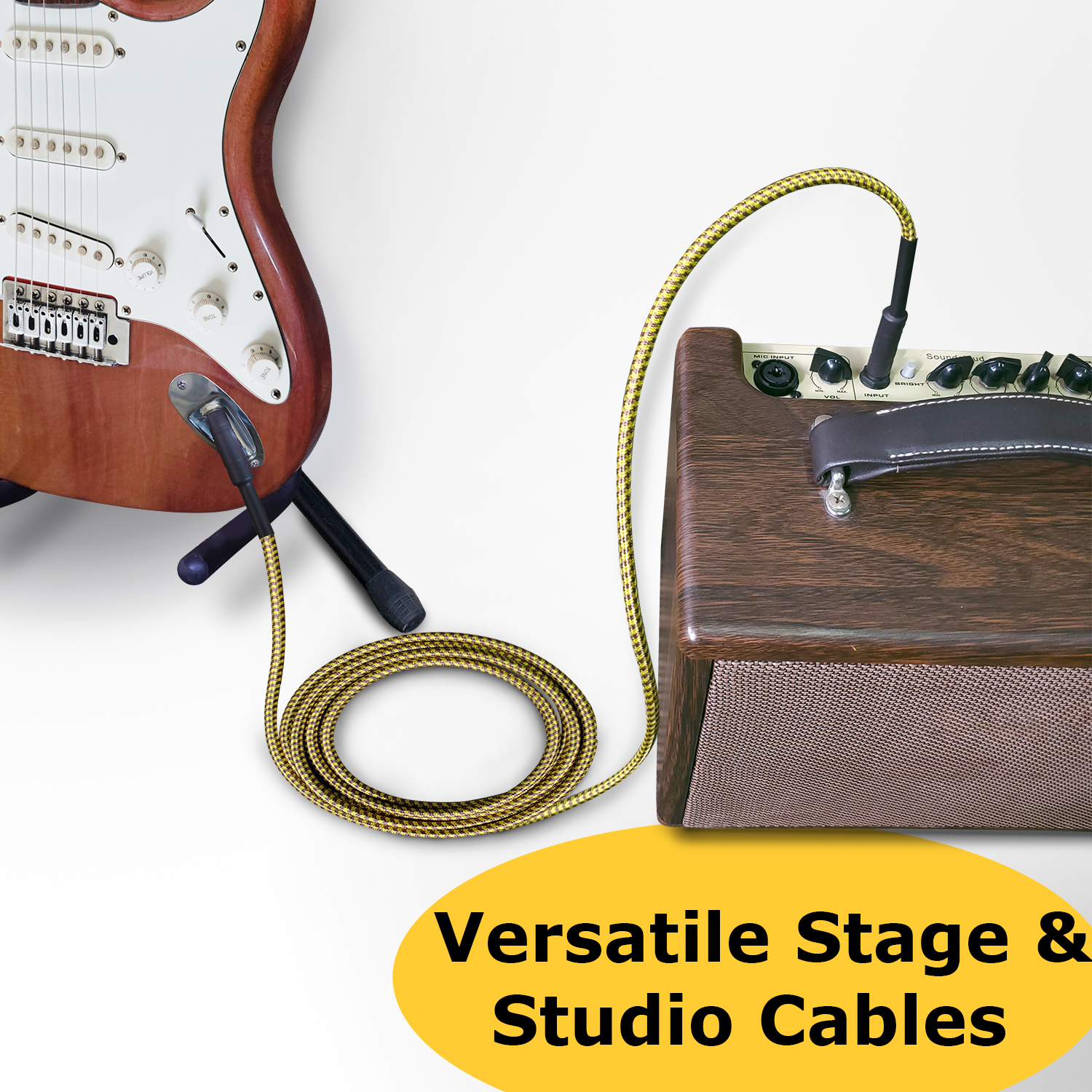- By ranchguitar
- |
- guide, Instruments Accessories
- |
- 0 Comment
- |
When purchasing guitar cables, there are several important factors to consider to ensure you make a well-informed decision. Here are some key issues to pay attention to:
Cable Length: Consider the length of the cable you require. Make sure it’s long enough to comfortably reach from your guitar to your amplifier or pedalboard without excessive slack. However, avoid excessively long cables as they can result in signal degradation.
Cable Type: Different types of guitar cables offer varying levels of performance and durability. The most common types are unshielded (instrument) cables and shielded (instrument) cables. Shielded cables provide better noise reduction and signal integrity, making them preferable for longer cable runs and professional setups.
Cable Thickness: The thickness, or gauge, of the cable affects its durability, signal quality, and flexibility. Thicker cables generally offer better durability and signal transmission, especially over longer distances. However, they can be less flexible and more challenging to manage.
Connectors: Pay attention to the connectors on the cable. The most common types are 1/4″ TS (Tip-Sleeve) connectors, which are standard for guitars and amplifiers. Ensure the connectors are sturdy, well-constructed, and provide a secure connection to prevent signal loss or intermittent connections.
Shielding: Look for cables with effective shielding, which helps reduce electromagnetic interference (EMI) and radio frequency interference (RFI). Good shielding helps maintain a clean and noise-free signal, especially in environments with high electrical interference.

Durability: Consider the build quality and durability of the cable. Look for cables with robust insulation, strong connectors, and flexible jackets that can withstand frequent use and transportation. Reinforced stress points and strain relief near connectors are also desirable features.
Price: Set a budget and consider the cost of the cable. While it’s essential to find a cable that fits your budget, prioritize quality and reliability over the lowest price. Investing in a well-built, durable cable can save you money in the long run by avoiding frequent replacements.
Reviews and Recommendations: Read customer reviews and seek recommendations from other guitarists or audio professionals. Real-world experiences can provide valuable insights into the performance, durability, and value of different cable brands and models.
By paying attention to these issues, you can choose a guitar cable that meets your specific needs, ensuring a reliable and high-quality signal transmission for your instrument.

Leave a Reply